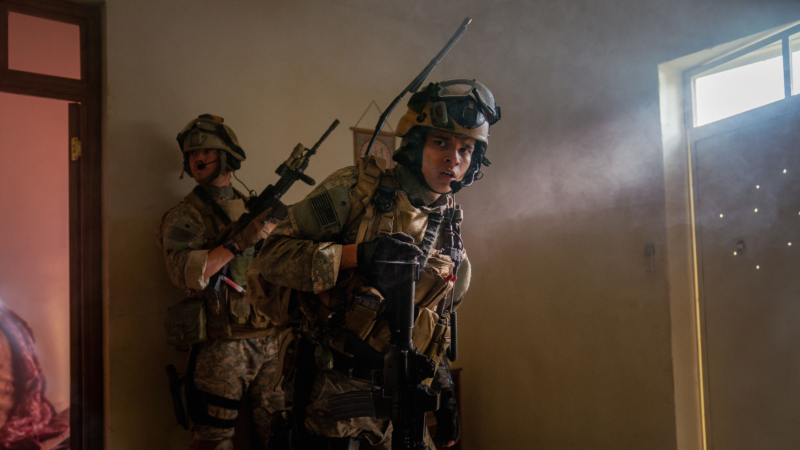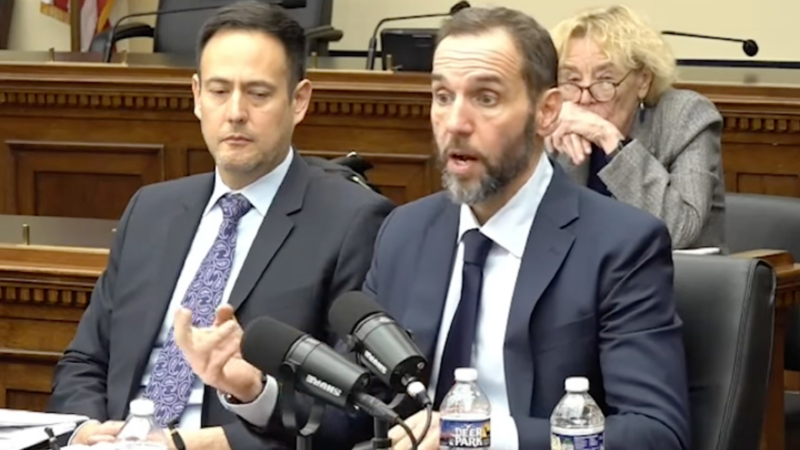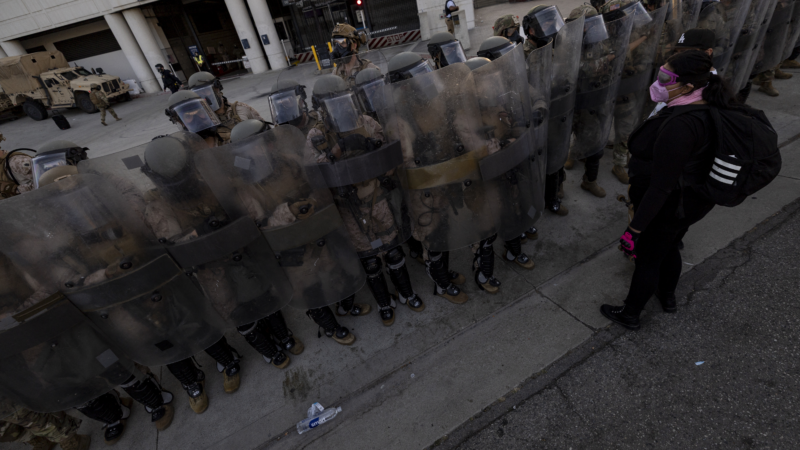‘Warfare’ embeds the audience in the chaos of modern combat
In his 2024 action-drama, Civil War, the British director Alex Garland imagined a dystopian America torn apart by violence. For all its echoes of the present day, I found the movie politically neutral to the point of vagueness, and I couldn’t buy into its world building. I did, however, buy into its world destroying, which is to say, its viscerally terrifying action sequences. In staging the battle scenes, Garland worked closely with a military adviser, Ray Mendoza, a former U.S. Navy SEAL who’s also lent his expertise to the war drama Lone Survivor and the video game, Call of Duty: Modern Warfare.
Now Garland and Mendoza have reteamed on a new movie, simply titled Warfare. The two co-wrote and co-directed the film, which reconstructs an incident from the Iraq War, in November 2006, when a routine mission by Mendoza and his fellow SEALs went dangerously awry. The script was drawn entirely from Mendoza’s and his comrades’ memories, with no attempt to fill in the war’s broader context. The aim is to embed the audience with the soldiers and provide as immersive an experience of modern combat as possible.
It begins at night, when a squad of SEALs break into a two-story apartment building in the city of Ramadi, known to be a hotbed of Al Qaeda insurgency. By the next morning, they’ve set up a surveillance operation, but the details of their mission remain unclear, which only ratchets up the tension. There’s no exposition, only terse, often-indecipherable bursts of military jargon.
The SEALs are played by actors including Will Poulter, Joseph Quinn, Michael Gandolfini and, as the young Mendoza himself, D’Pharaoh Woon-A-Tai, from the series Reservation Dogs. But we barely get to know their characters’ names or backgrounds. They don’t crack jokes or tell stories from back home; they haven’t been given the cliché of one distinguishing personality trait apiece. Most of the time, we see and hear them functioning as a unit, and a cohesive, very well-trained one.
The SEALs mostly sit quietly in wait; one sniper, Elliott, played by Cosmo Jarvis, keeps his rifle trained on a house across the street, where he suspects insurgents are hiding. And then all hell breaks loose: An unseen enemy drops a grenade into the building, making it clear that their presence has been discovered.
Given how many films we’ve seen about U.S. troops in combat, from Platoon and Full Metal Jacket to Saving Private Ryan and The Hurt Locker, it’s a tall order for a movie to say something new about the experience. But Warfare succeeds, in part, by committing to a level of moment-to-moment realism that those earlier films, even at their most harrowing, didn’t strive for.
Most of the story plays out in real time, and as the SEALs wait and wait for armored vehicles to bring them to safety, the directors aren’t afraid to slow the pace down and draw things out to an agonizing degree. The movie’s second half is at once excruciating and mesmerizing; an IED goes off, casualties are sustained, and wounds are lingered on at graphic length. You’re reminded of how quickly some war movies cut away from the carnage, but Warfare doesn’t; some of its soldiers’ anguished screams are still echoing in my brain.
Some will find Garland and Mendoza’s film too narrowly focused, to the exclusion of any deeper insight into the war. Similar critiques were leveled at The Hurt Locker, still perhaps the best American drama ever made about the Iraq War, and they’re no more convincing when lobbed at Warfare. Those looking for politics will find it, I think, in the way Garland and Mendoza avoid jingoism and false heroics; there are acts of heroism here, to be sure, but no glorification.
And we’re never allowed to forget that the American soldiers are a hostile, intrusive presence. From time to time, we see Iraqi civilian families huddling in terror in the apartment building where the SEALs have set up their operation. There are also quick glimpses of insurgents firing from rooftops across the street. At times I wondered what kind of movie could be made about the same events from their perspective, with the same radical absence of cliché. Warfare doesn’t just offer a corrective to the war movies we’ve seen already; it’s powerful enough to leave us thinking about all the ones we still have yet to see.
Zohran Mamdani sworn in as New York City mayor, capping historic rise
Mayor Zohran Mamdani took the oath of office in New York City after midnight Thursday. The city's first Muslim mayor, a member of the Democratic Socialists of America, has promised to focus on affordability and fairness.
Rising from the ashes, a symbol of hope at the Rose Parade
Survivors of the Eaton and Palisades Fires find healing and community working on a Rose Parade float to honor the lives and communities lost in last year's wildfires.
The history behind the NYC subway station chosen for Mamdani’s swearing-in
The city shut down the station in 1945 on New Year's Eve. Eighty years later, it's a symbolic venue choice for the incoming mayor's private swearing-in ceremony.
U.S. military strikes 5 more alleged drug boats, killing 8
The U.S. military says it struck five alleged drug-smuggling boats over two days. The attacks killed eight people, while others jumped overboard and may have survived. U.S. Southern Command did not reveal where the attacks occurred.
Capitol riot ‘does not happen’ without Trump, Jack Smith told Congress
Former special counsel Jack Smith also described President Trump as the "most culpable and most responsible person" in the criminal conspiracy to overturn the 2020 election results, according to a transcript of Smith's closed-door interview with the House Judiciary Committee.
Trump will drop push for National Guard deployments in Chicago, LA and Portland, Ore.
Courts blocked troops from deploying in Chicago and Portland, Ore., and the Los Angeles deployment effectively ended after a judge blocked it earlier this month.







